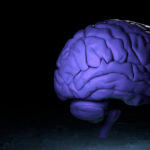Detailed in their new findings, a group of researchers at the University of California, San Diego unveiled a new PHGDH gene discovery that could pave the way for the development of a blood test for detecting Alzheimer’s disease in its early stages.
As published in Current Biology, tests examining high blood levels of RNA produced by the gene can be a biomarker to detect the neurodegenerative disease in its early stages. RNA is vital for brain function and development among adolescents. For adults and the other population, the gene reduces production of those RNAs.
In the study, researchers aimed to identify possibility of clinical diagnosis much faster than our current abilities, which can be after considerable progression of cognitive deterioration in the brain.
Using SILVER-SEQ, researchers analyzed the exRNA profiles in the blood samples of more than 30 adults aged 70 and older over a span of one decade and a half. 15 of the participants were patients with Alzheimer’s disease, 11 were healthy at the start but developed Alzheimer’s later on, and 9 were regarded as healthy controls.
Based on the assessment of UC San Diego researchers, an excessive amount of extracellular RNA (exRNA) by the PHGDH gene could be a way to detect neurodegeneration early on in older adults.
Among the participants who started healthy but developed Alzheimer’s later on, researchers noticed a steady surge in PHGDH exRNA production two years before their official diagnosis. The healthy control group experienced no such changes in exRNA production.
“This is a retrospective study based on clinical follow-ups from the past, not a randomized clinical trial on a larger sample size. So we are not yet calling this a verified blood test for Alzheimer’s disease,” said Zixu Zhou, co-author of the study.
“Nevertheless, our data, which were from clinically collected samples, strongly support the discovery of a biomarker for predicting the development of Alzheimer’s disease.”


